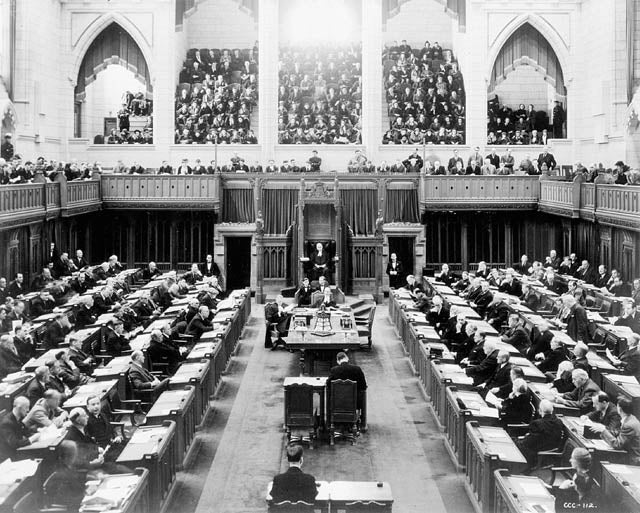
Recipient
Alana Cattapan, Political Science
Project Summary
In the Winter of 2020, my second-year class piloted an assignment developing an open-access digital, introductory textbook in Canadian politics. The assignment and website (“Welcome to Canadian Politics” or WTCP) asks students to write submissions for the textbook-in-progress, while expanding their knowledge of Canadian politics, improving their plain-language writing skills, working collaboratively, and connecting with an audience beyond our classroom (www.welcometocanadianpolitics.wordpress.com).
The LITE grant project built on the existing assignment to scale up contributions, to establish a framework for ongoing assessment, to improve the usability of the website, and to ensure sustainability of the WTCP initiative. The objectives of the LITE grant were to:
- Create a comprehensive assignment guide for students
- Develop a self-assessment tool for students
- Develop a WTCP handbook for teaching teams
- Onboard and debrief participating teaching teams
- Revise the website to improve functionality
- Develop a project-assessment tool for students
- Engage in knowledge dissemination
Research Outcomes
For students, the project aimed to help them:
- Become familiar with the range of issues in Canadian politics, and what is conventionally included (and excluded)
- Write clearly and concisely to convey information to a broad readership
- Collaborate with one another to build knowledge about Canadian politics
- Share course-related knowledge with an audience beyond our classroom and over time, to engage with other scholars in other classrooms
More broadly, the project aims to produce a student-generated, open-access resource for the study of Canadian politics (a “textbook” of sorts). While this objective is ongoing (and will take a long time to produce) an important objective of the LITE grant was to help us develop the resources (e.g., assessment tools, assignment and project guides) to facilitate student engagement in the project within and beyond the University of Waterloo, and to ensure that the initiative will grow sustainably.
Findings
The project was a great success. With the support of the LITE seed grant, we revamped the website to enable direct submissions, but also to improve broader functionality for editing and revision.
The development of the resources to support students and teaching teams were largely successful. Since teaching the assignment and updating the website in Winter 2021 (at both the University of New Brunswick and the University of Waterloo), we have taken feedback from both students, TAs, and the professor teaching the assignment at the University of New Brunswick into consideration to revise the student handbook, provide clearer information about referencing for the website, and are generally tweaking the guidelines for submission to improve usability.
Overall, students continue to report that they enjoy the project, that the resources were helpful, and that they are pleased with the project.
References
Allen, Myria W., Kandi L. Walker, and Lynne M. Webb. “Feminist Pedagogy: Identifying Basic Principles. (The Scholarship of Teaching and Learning).” Academic Exchange Quarterly, 2002.
Anderson, Rae. “Empowering Students Through Feminist Pedagogy.” In Voices from the Classroom: Reflections on Teaching and Learning in Higher Education, edited by Janice Newton, 68–73. Toronto: Broadview, 2001.
Cattapan, A. “(Re)Writing ‘Feminism in Canada’: Wikipedia in the Feminist Classroom.” Feminist Teacher 22, no. 2 (2012): 125–36.
Crabtree, Robbin D., and David Alan Sapp. “Theoretical, Political, and Pedagogical Challenges in the Feminist Classroom: Our Struggles to Walk the Walk.” College Teaching 51, no. 4 (October 1, 2003): 131–40.
Ladner, Kiera L. “Taking the Field: 50 Years of Indigenous Politics in the CJPS.” Canadian Journal of Political Science 50, no. 1 (2017): 163–79.
McPherson, Kathryn. “Feminist Pedagogy: Paradoxes in Theory and Practice.” In Voices from the Classroom: Reflections on Teaching and Learning in Higher Education, edited by Janice Newton, 58–62. Toronto: Broadview, 2001.
Nath, Nisha. “Defining Narratives of Identity in Canadian Political Science: Accounting for the Absence of Race.” Canadian Journal of Political Science 44, no. 1 (2011): 161–93.
Thompson, Debra. “Is Race Political?” Canadian Journal of Political Science/Revue Canadienne de Science Politique 41, no. 3 (2008): 525–47.
Tolley, Erin. “Hidden in Plain Sight: The Representation of Immigrants and Minorities in Political Science Textbooks.” International Journal of Canadian Studies (Forthcoming, 2020).
Turpin, Cherie Ann. “Feminist Praxis, Online Teaching, and the Urban Campus.” Feminist Teacher 18, no. 1 (2007): 9–27.